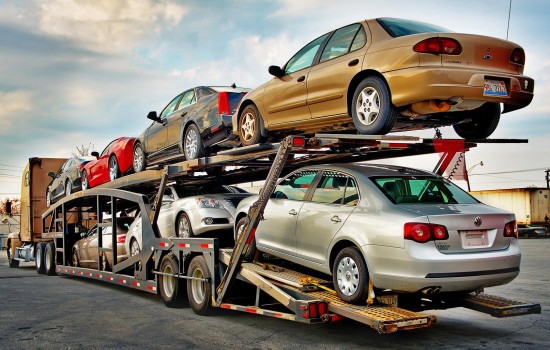Recession, forex crisis limiting Nigeria auto industry

To talk about the competitive strength of Nigeria’s automobile industry is to be making a mere rhetoric in an area that is relatively unknown in the country. The number of used cars, as well as brand new ones being imported into the country speaks volumes of Nigeria’s long way to a virile, competitive and strong automobile industry.
In spite of the existence of a functioning automobile company in Nigeria, the sector remains much at infancy because of some challenges that largely stem from preference for foreign automobiles, lack of government’s support, low patronage of locally made automobiles, among many others.
Historically, the industry, has its origin in the 70’s when the Federal Government entered into joint venture agreement with a number of foreign automotive manufacturing firms to set up a couple of assembly plants in the country. But 40 years later, only one or two of such foreign firms are still assembling motor parts in Nigeria.
These ups and downs in this sector, however, have not in any way deterred the only manufacturing firm, wholly owned by a Nigerian, from its operation and it produces different brands of vehicles that ply Nigerian roads side by side with the foreign ones.
Located in Nnewi village of Anambra State, Innosons Vehicle Manufacturing Limited (IVM) has been the leading hope of Nigeria in automobile business.
As the country grapples with economic recession that continues to drain our foreign reserves, perhaps the attention of government on how to discourage importation in order to save our foreign exchange earnings could be a positive factor towards the critical importance of the company.
The Minister of Information and Culture, Lai Mohammed, about a month ago, led a team of 25 journalists on a facility tour of the manufacturing complex of Innoson Vehicle Manufacturing Company in Nnewi, Anambra State.
The visit afforded journalists the opportunity to set the records straight, different from the present perception about Nigeria’s capabilities in the sector.
Alhaji Mohammed was taken to the different departments of the plant: auto mechanical, painting, electrical, welding and fabrication. He also visited the learning academy where beneficiaries of the Presidential Amnesty Programme are currently undergoing training.
While touring these sections, one could only imagine what having 10 of such factories in the country would do to the present state of the economy and employment status of the country, not forgetting the foreign exchange earnings.
But even with his recorded success, Chairman and Chief Executive Officer of Innoson, Chief Innocent Chukwuma, complained of low patronage, of which he sought Federal Government’s support.
He said such a company should be the pride of the nation and should have government ministries and agencies patronising its products.
He however appealed to the Federal Government to encourage its agencies and institutions to patronise more of his products to show confidence in his products, and increase the capacity of the local industry.
Obviously shocked and impressed with what he saw, Alhaji Mohammed dismissed statements that the company was a mere assembling plant, stressing that it was working as the National Automotive Industry Development Plan had envisaged on harnessing local resources.
“Innoson is living up to what the policy aims to achieve: creation of jobs, conservation of foreign exchange and acceleration of technical development,” he said after the tour.
The minister described the company as a trail blazer in Nigeria’s automotive industry, adding that the vehicle manufacturing company was a “shining example of what Nigeria is capable of achieving if it looks inwards and taps into the boundless energy and ingenuity of its people.”
He assured the gathering that the Federal Government was not paying lip service to the issue of Made-in-Nigeria, adding that government, through the Ministry of Industry, Trade and Investment, in collaboration with the Ministry of Information and Culture, rolled out the National Media Launch of the Made-in-Nigeria Campaign recently to encourage the production and consumption of local products.
He restated the Federal Government’s commitment to diversifying the economy, and urged other tiers of government to key into the new Executive Order of Ease of Doing Business Initiative recently signed by the Acting President, Yemi Osinbajo.
“On May 18, 2017, as part of the Ease of Doing Business Initiative, Acting President, Yemi Osinbajo, signed three Executive Orders: one of the three is called the ‘Support for Local Contents in Public Procurement by the Federal Government’.
“A key provision of this is that all ministries, departments and agencies of the Federal Government shall grant preference to local manufacturers of goods and service providers,” he said.
But it is more than a mere visit of a top government minister that is required in the sector. A more practical policy by the government directed to all the agencies, ministries and departments to be the chief patronisers of local industries as a way to lead other businesses and individuals to follow should be put in place.
If all go according to plan and the promise of government, Nigeria should be able to have more auto manufacturers in the coming years thereby ending over dependence on foreign automobiles; with the accompanying financial benefits.









0 Comments